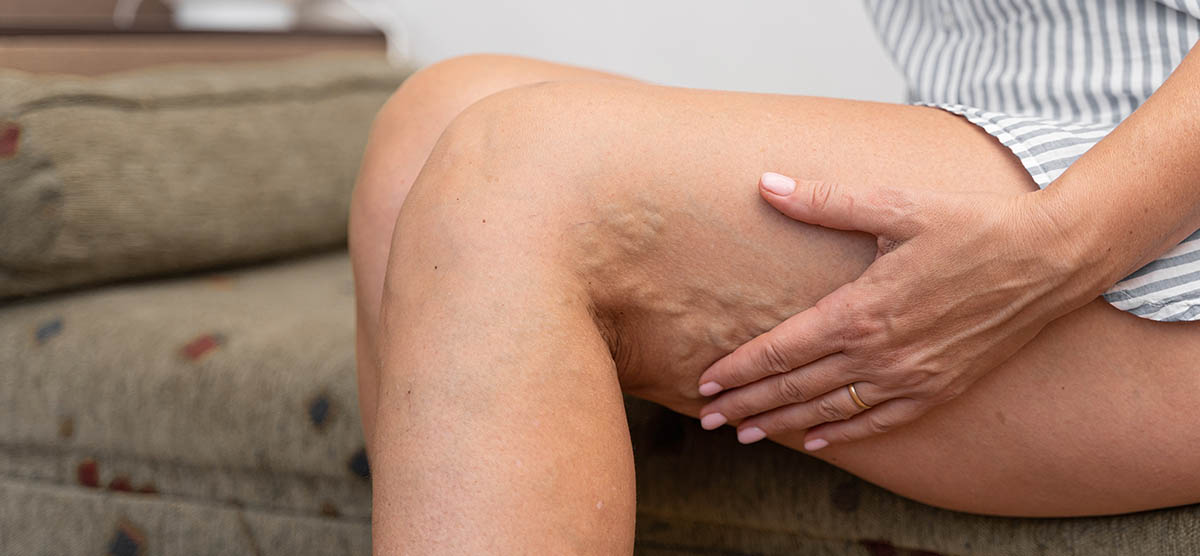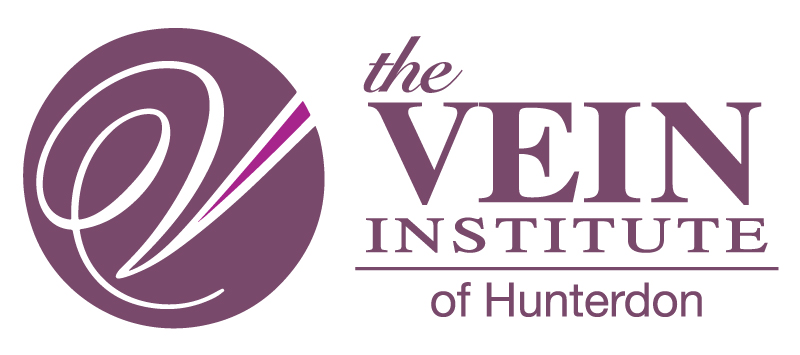What Is the Difference between Varicose and Spider Veins?

When talking about those raised, swollen veins that you find on your legs, or the small, red and blue veins that look more like branches, the terms varicose veins and spider veins often get thrown around interchangeably, when in fact, they are two different vein issues. While they each occur for similar reasons, it’s important to know the difference when deciding what treatment options are best for you.
What Are Varicose Veins?
Varicose veins are large, twisting veins that bulge above the skin and found most commonly in the legs. They have several causes but ultimately gravity and time will cause increased pressure in the veins, which in turn causes them to dilate and enlarge. While for some patients varicose veins are only an aesthetic concern, for others they can become painful and be an indication of more serious health problems.
What Are Spider Veins?
Spider veins, sometimes called thread veins, are small, damaged veins that appear as thin lines or branched webs on the legs, close to the surface of the skin. Usually blue, red, or purple in color, these veins do not often cause pain or indicate worsening health conditions but are usually treated for cosmetic reasons.
Varicose Veins and Spider Veins: How They’re Alike
Both of these vein conditions stem from similar root issues. With varicose veins, the problems stem from malfunctioning valves in blood vessels. The blood moving through the vein does not move forward properly, causing an enlarged vein. Spider veins come from the same issue, although their likelihood can be worsened by conditions like obesity, heredity, pregnancy, and menopause.
Varicose Veins and Spider Veins: How They Differ
Varicose and spider veins have a lot in common, but the main difference is in appearance. Varicose veins are raised, swollen blood vessels that twist and turn beneath the skin. Spider veins are smaller, more superficial blood vessels. Additionally, varicose veins can be very painful, while spider veins typically don’t hurt.
Treatment Options
There are many options for treating varicose veins and spider veins, and The Vein Institute has the solution. Our state-of-the-art treatments include:
- EVLT Laser Ablation – Used to treat varicose veins, in endovenous laser treatment (EVLT), a local anesthetic is applied and a thin laser fiber is inserted into the targeted vein in the leg, heating and disrupting the walls of the vein, diverting the blood flow to the surrounding veins. The affected vein is then absorbed by the body, offering immediate relief of symptoms.
- Radiofrequency Ablation – Radiofrequency energy is used to generate heat, which closes the vein in this fast, minimally invasive procedure that results in the reduction of the appearance of varicose veins.
- Sclerotherapy – Used to treat both spider and small varicose veins, an irritant is injected into the affected vein, causing it to constrict and gradually be reabsorbed by the body. Over time the vein will disappear, treating any cosmetic concerns and the uncomfortable symptoms of varicose veins.
- Ambulatory Phlebectomy – It is used when veins are too large for sclerotherapy. This outpatient procedure removes leg veins through tiny punctures in the skin, using local anesthesia.
- VenaSeal™ – An FDA approved procedure used to treat varicose veins. A catheter is inserted into the affected vein, where cyanoacrylate, a medical adhesive, is dispensed, causing the walls of the vein to stick together, sealing it off. The body then redirects the flow of blood.
Signs and Symptoms of Vein Conditions
In addition to the visual cues for vein conditions, there are other warning signs. If you’re experiencing some or all of the following symptoms, you may be dealing with varicose or spider veins:
- Leg muscle cramps
- Throbbing, burning, and/or itching sensations in the legs
- Tiredness in the legs
- Swollen ankles and/or legs
The good news is, whether you’re facing spider veins, varicose veins, or both, we offer a variety of effective treatments. Contact The Vein Institute of Hunterdon to schedule a free consultation to determine the best course of treatment for your individual needs. We’ll be happy to serve you!
